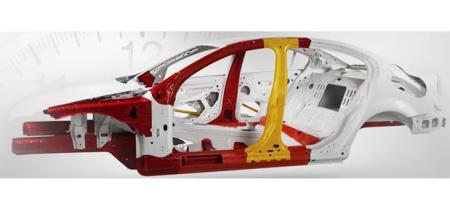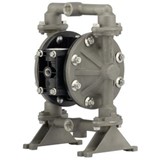Chris Williams reports exclusively...
A week may be a long time in politics, but for the automotive industry a day was enough.
Less than 24 hours after Holden boss Mike Devereux told a Productivity Commission hearing that General Motors was yet to make up its mind about the car maker's future in Australia, GM did just that, announcing its intention to exit local car manufacturing by the end of 2017.
Devereux's insistence that the decision had not been made when he fronted the hearing may defy credulity, but to argue over the timing misses the point. Whether the decision was made last week, last month or last year, the opportunity to save Holden's Australian manufacturing operations was already gone, and the 3000 or so businesses operating directly and indirectly in the automotive supply chain – and the 45,000 people they employ – probably knew it.
While it is now too late to change GM's mind about a decision the company has described as "irreversible", all is not lost, and between them government and industry must now find a way forward starting with Toyota, and flowing through to Australia's industrial sector as a whole.
Defining moment
Ai Group chief executive Innes Wilcox didn't play down the significance of the Holden announcement, but rather turned his attention to the future.
"There are two big challenges presented by today's announcement which will be defining opportunities for government and industry," Wilcox said.
"The first is to ensure that appropriate transitional support is provided for the employees and businesses directly affected by this decision. The second challenge is to make sure we find new ways to stimulate and develop our manufacturing capabilities in the absence of the role that Holden has played so well for many decades.
"There is a very important role for federal and state governments and for industry in meeting these challenges. With the right policy settings and industry attitude, Holden's workforce can move into new areas where their skills can contribute to growing Australia's manufacturing and innovative capabilities and we can develop new sources of industrial strength.
"It is vital that the government now acts decisively to ensure a strong and dynamic industrial sector in Australia."
Paul Philips is the managing director of Benson Machines, a machine tool distributor and technology company with a history dating back over 100 years in Australia. Philips is a pragmatist who himself has been in the industry for some 35 years, and like Wilcox says strong government is the key.
"Regardless of political persuasion I don't think the politicians understand metal manufacturing," Philips told IndustrySearch.
"What the government should be doing is falling over themselves to ensure the survival of the component industry.
"The people who screw the cars together at GM in Adelaide aren't the real guts of it. The real guts of it are the people who make the components, that's where the real value add is, and that's where the jobs are.
"So whether or not we screw a car together in Australia probably doesn't really matter, but what does matter is that we have a car component industry."
Which is where, Philips says, the Coalition government has already dallied too long.
"What puzzles me with the Productivity Commission inquiry is that it has dragged out so long," Philips said.
"The government has been in place three months, they've had rumblings all that time that Holden is ready to go, they should have rushed that through and said 'look this is critical we need to cut through the red tape, what are the real factors that we need to look at to keep the company going here?'."
Toyota plan
If the Holden horse has bolted, according to Philips, Toyota may yet be saveable, but a plan and decisive action is needed immediately.
"Hats off to Toyota for having the faith in Australia to build and maintain a car plant over a 50-year period. They've shown a faith in us that we haven't shown in ourselves," Philips said.
"We need to love these people. They say they need to get a little bit of cost out of their cars, let's listen to them.
"Tell them we are not letting you leave the country, what do we need to do to keep you here, because we should have done that some time ago with GM. That's history now, but Toyota is still here and they haven't decided to leave yet I don't believe.
"If the government comes to the right agreement with Toyota, not by writing cheques and saying here is another hundred million, but by creating the right ecosystem around them to say we are doing everything we can to make your suppliers as efficient as they can be, then Toyota can be saved.
"But without a political will it's difficult. If government departments all bought Australian cars our problems would be fixed. When the solution is right under your nose and you choose not to do it - we can't save ourselves from ourselves."
The tariff playing field
Then there is the thorny question of tariffs. Cars imported into Australia carry a tariff of five per cent, unless there is a free trade agreement in place between the two countries in which case that drops to zero per cent.
Meanwhile for cars heading in the other direction a combination of tariffs, taxes and duties means Australian exporters can be paying anywhere between 10 and 80 per cent on exported vehicles, depending on the destination.
For example, Thailand exports 180,000 cars to Australia at 0 per cent tariff, in the other direction Australian car makers pay a duty of between 50 and 80 per cent. India, Russia, Brazil, Malaysia and China are all exporting cars to Australia at a maximum 5 per cent tariff, for Australian-made cars making the return journey, it ranges from 25 to 60 per cent.
While Philips acknowledges the need for give and take if Australia wants access to these markets for its coal, iron ore, wool and wheat exports, he says it can't be at the cost of destroying Australia's elaborately transformed manufactures (ETM) industry.
"When you look at what other countries do in terms of protecting their industries…why should we be the candle carrier for the whole world?" Philips asked.
"What I would love to see is the government introduce an automotive industry requirement – and I hate to use the word tariff – but let's say Hyundai import a billion dollars' worth of cars a year, if the government were to say if you want to import those cars, 20 per cent of the landed value should be spent in Australia.
"Now it doesn't have to be spent on automotive but it should be spent on elaborately transformed manufactures. So having a policy like that in place, forcing the importers of cars to spend a percentage of what they do here in Australia has to help.
"There is nothing here at the moment, there is no competitive advantage, there is no compelling argument for operating an ETM business in Australia."
Despite the challenges ahead, Philips does see positives.
"Look at Ford – they've elected to maintain a design studio here. We are smart, and given the right ecosystem we can do very well," Philips insisted.
"I believe Toyota built their new engine plant on the back of the quality of the Camry in Australia. The Australian engine for the Camry is as good or better than any other market the Camry is produced in. That tells you we do have the skills, we can do it."






